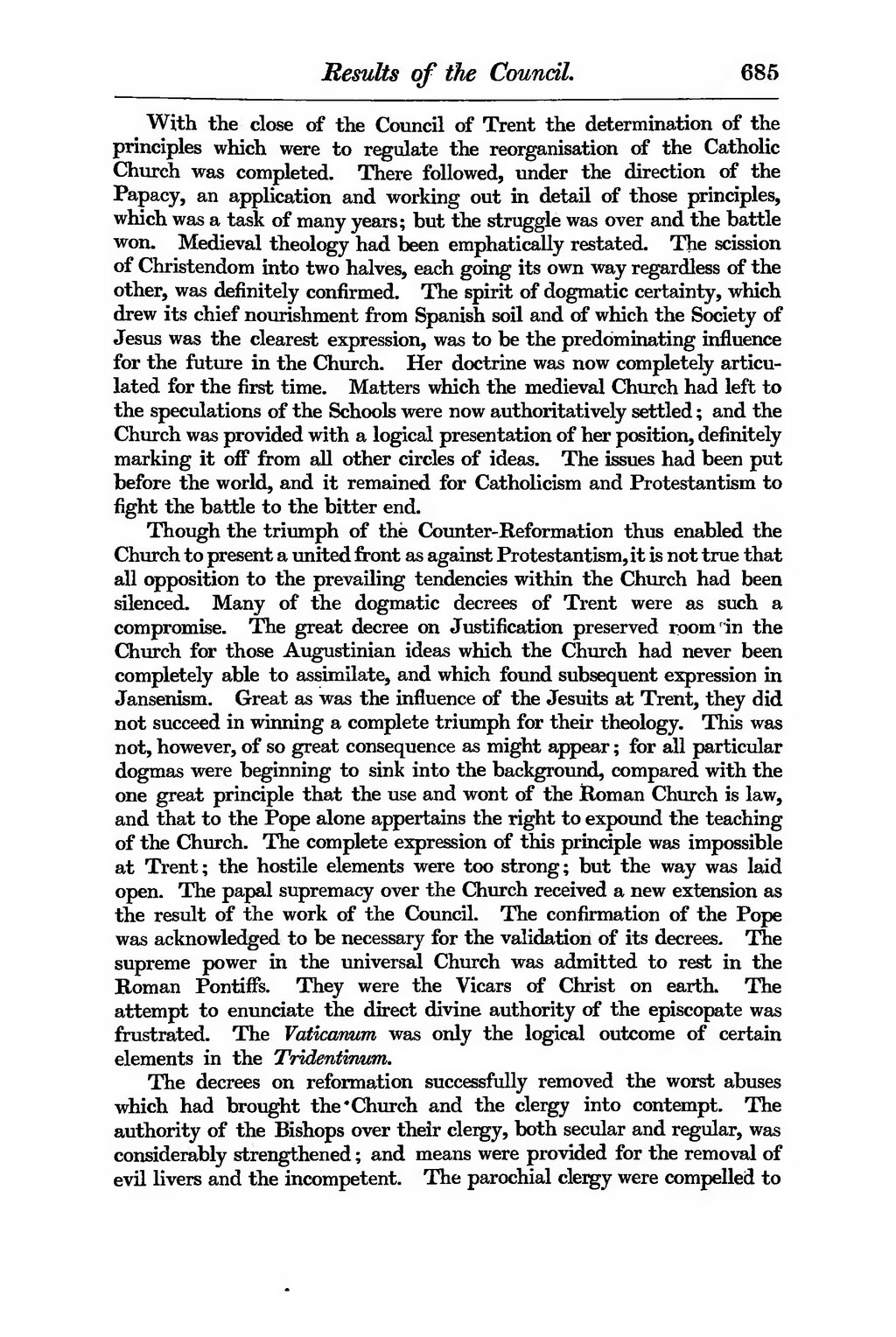With the close of the Council of Trent the determination of the principles which were to regulate the reorganisation of the Catholic Church was completed. There followed, under the direction of the Papacy, an application and working out in detail of those principles, which was a task of many years; but the struggle was over and the battle won. Medieval theology had been emphatically restated. The scission of Christendom into two halves, each going its own way regardless of the other, was definitely confirmed. The spirit of dogmatic certainty, which drew its chief nourishment from Spanish soil and of which the Society of Jesus was the clearest expression, was to be the predominating influence for the future in the Church. Her doctrine was now completely articulated for the first time. Matters which the medieval Church had left to the speculations of the Schools were now authoritatively settled; and the Church was provided with a logical presentation of her position, definitely marking it off from all other circles of ideas. The issues had been put before the world, and it remained for Catholicism and Protestantism to fight the battle to the bitter end.
Though the triumph of the Counter-Reformation thus enabled the Church to present a united front as against Protestantism, it is not true that all opposition to the prevailing tendencies within the Church had been silenced. Many of the dogmatic decrees of Trent were as such a compromise. The great decree on Justification preserved room in the Church for those Augustinian ideas which the Church had never been completely able to assimilate, and which found subsequent expression in Jansenism. Great as was the influence of the Jesuits at Trent, they did not succeed in winning a complete triumph for their theology. This was not, however, of so great consequence as might appear; for all particular dogmas were beginning to sink into the background, compared with the one great principle that the use and wont of the Roman Church is law, and that to the Pope alone appertains the right to expound the teaching of the Church. The complete expression of this principle was impossible at Trent; the hostile elements were too strong; but the way was laid open. The papal supremacy over the Church received a new extension as the result of the work of the Council. The confirmation of the Pope was acknowledged to be necessary for the validation of its decrees. The supreme power in the universal Church was admitted to rest in the Roman Pontiffs. They were the Vicars of Christ on earth. The attempt to enunciate the direct divine authority of the episcopate was frustrated. The Vaticanum was only the logical outcome of certain elements in the Tridentinum.
The decrees on reformation successfully removed the worst abuses which had brought the Church and the clergy into contempt. The authority of the Bishops over their clergy, both secular and regular, was considerably strengthened; and means were provided for the removal of evil livers and the incompetent. The parochial clergy were compelled to
